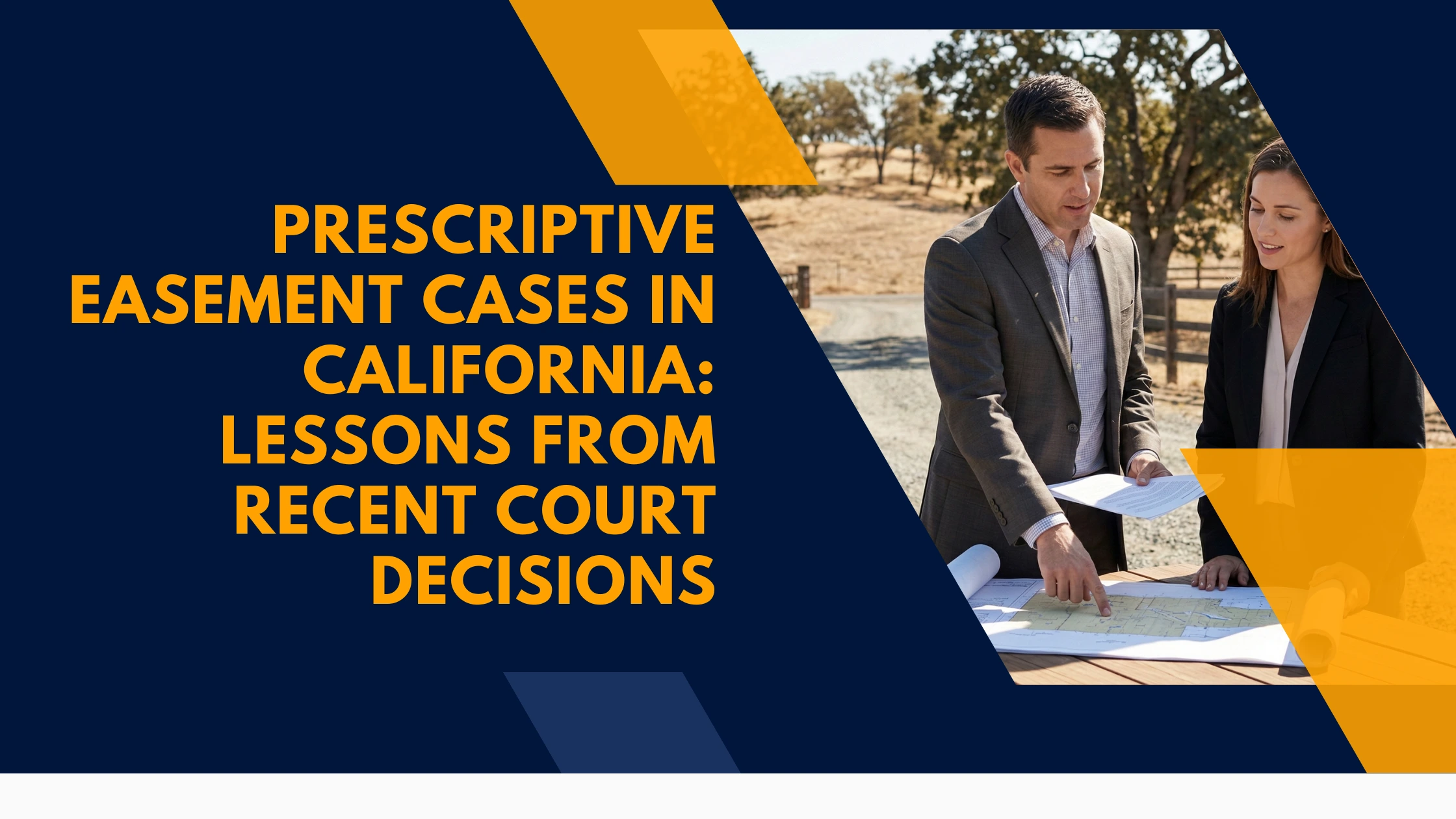TL;DR
For wealthy Californians, the approaching 2025 reduction of the federal estate tax exemption makes proactive high-net-worth estate planning essential. Standard trusts are insufficient for true wealth preservation. This guide covers advanced tax strategies like the Irrevocable Life Insurance Trust (ILIT), Qualified Personal Residence Trust (QPRT), family limited partnerships, and charitable trusts. Proper estate tax planning is critical to mitigate the generation-skipping transfer tax and protect your legacy from significant tax liabilities. Taking action now is key to securing your family’s financial future before the legal landscape shifts dramatically.
Navigating High-Net-Worth Estate Planning in California Before the 2025 Tax Cliff
A seismic shift is coming for wealthy families in California. The clock is ticking toward Jan. 1, 2026, when the current, historically high federal estate tax exemption is scheduled to be cut in half. This change could potentially expose millions more in assets to a federal estate tax of up to 40%. For individuals and families with significant assets, a standard will or revocable trust may no longer be enough. The situation calls for a deeper look into high-net-worth estate planning.
This isn’t just about drafting a will. It is a strategic approach designed for wealth preservation against significant tax liabilities. Families who have built their wealth through hard work and savvy investments now face the challenge of protecting that legacy. The strategies involved are more complex, requiring careful navigation and a proactive approach. Understanding these advanced tax strategies is the first step toward securing your family’s financial future. The conversation must begin now, as many of these tools require time to be established and managed effectively.
Beyond the Basics: High-Net-Worth Estate Planning Essentials
When your assets exceed the federal estate tax exemption, every dollar over that threshold is at risk. This is where advanced estate tax planning becomes crucial. The goal is to legally and ethically minimize your taxable estate, thereby reducing the tax burden on your heirs. This is achieved by moving assets out of your direct ownership and into specialized legal structures.
One popular tool is the Irrevocable Life Insurance Trust, commonly known as an ILIT. An ILIT is a trust that is created to own a life insurance policy. When structured correctly, the death benefit from the policy is paid to the trust, not to your estate. Consequently, these funds are not subject to estate taxes. Your beneficiaries can then receive the proceeds tax-free, providing them with immediate liquidity to cover any estate taxes or other expenses without having to sell off family assets like a business or real estate. Proper high-net-worth estate planning often involves an ILIT as a foundational element for wealth preservation.
Another powerful instrument is the Qualified Personal Residence Trust, or QPRT. A QPRT allows you to transfer your primary residence or a vacation home into a trust for a specific number of years. During this term, you continue to live in the home as you always have. After the term ends, the home passes to your beneficiaries, but its value for gift tax purposes is locked in at the time the QPRT was created. This strategy can effectively remove a highly valuable and appreciating asset from your taxable estate, leading to significant tax savings.
Navigating tools like an ILIT or QPRT requires careful guidance. Bay Legal PC advises on these legal structures and collaborates with your financial team to help align them with your wealth preservation goals. To explore your options, call us at (650) 668 8000 or schedule a consultation via our booking calendar. You can also email us at intake@baylegal.com or visit our office at 667 Lytton Ave, Suite 3, Palo Alto, CA 94301.
Advanced Tax Strategies for Lasting Wealth Preservation
For families with intricate assets, such as a family business, family limited partnerships (FLPs) offer a compelling solution. An FLP is a legal entity you create to hold assets. You, as the general partner, maintain control over the assets. You can then gift limited partnership interests to your children or other beneficiaries over time. These gifts may be eligible for valuation discounts because the limited partners do not have management control. This makes family limited partnerships a potent tool for transferring wealth at a reduced gift tax cost while protecting assets from creditors.
Furthermore, charitable trusts present an opportunity to create a philanthropic legacy while reaping substantial tax benefits. There are two primary types: the Charitable Remainder Trust (CRT) and the Charitable Lead Trust (CLT). A CRT allows you to place assets in a trust that pays an income to you or your beneficiaries for a set period. After that, the remainder goes to a charity you designate. This can provide you with an income stream and an immediate charitable deduction. A CLT works in reverse, paying a charity first before your heirs receive the remainder. Both are excellent advanced tax strategies for those with philanthropic goals.
Family limited partnerships and charitable trusts are powerful but complex. Bay Legal PC advises on the legal framework for these entities, working alongside your tax advisors to create a cohesive strategy for your family. To discuss how we can help, please call us at (650) 668 8000 or email intake@baylegal.com. You can also schedule an appointment through our booking calendar or meet us at 667 Lytton Ave, Suite 3, Palo Alto, CA 94301.
It is also vital to address the generation-skipping transfer tax (GSTT). This is a separate federal tax imposed on transfers made to individuals who are more than one generation younger than the donor, such as grandchildren. The GSTT has its own exemption, and careful estate tax planning is required to use this exemption effectively. Without proper planning, your family could face an additional layer of taxation, significantly eroding the wealth you intend to pass down. High-net-worth estate planning must account for the generation-skipping transfer tax to ensure your legacy reaches its intended recipients intact.
The looming changes to the federal estate tax exemption have created a sense of urgency. The window of opportunity to take advantage of the current high exemption is closing. Implementing tools like an ILIT, QPRT, or charitable trusts can take time. Proactive estate tax planning is no longer a luxury for the wealthy; it is a necessity for effective wealth preservation. As 2025 approaches, families must evaluate their plans and take action. But even with these powerful tools in place, one overlooked detail could still unravel the most carefully crafted plan.
Understanding all your options is the first step toward securing your legacy. The team at Bay Legal PC is here to help guide you. Contact us at (650) 668 8000 or intake@baylegal.com to start the conversation. For your convenience, you can use our online booking calendar to schedule a meeting or visit us at 667 Lytton Ave, Suite 3, Palo Alto, CA 94301.
Frequently Asked Questions
1. What is high-net-worth estate planning?
It is a specialized area of estate planning for individuals whose assets exceed the federal estate tax exemption. It uses advanced tax strategies, such as trusts and partnerships, for wealth preservation and to minimize taxes like the generation-skipping transfer tax.
2. Why is the 2025 federal estate tax exemption important?
The exemption is set to be cut in half in 2026, meaning millions more in assets could be subject to estate taxes. Proactive high-net-worth estate planning is crucial to prepare for this significant change and protect your family’s inheritance.
3. What is an ILIT, and how does it help?
An ILIT, or Irrevocable Life Insurance Trust, owns your life insurance policy. This removes the death benefit from your taxable estate, allowing the funds to pass to your beneficiaries tax-free. It is a key tool in estate tax planning for wealth preservation.
4. How does a QPRT work in estate tax planning?
A QPRT, or Qualified Personal Residence Trust, lets you transfer your home to a trust, freezing its value for gift tax purposes. This removes a significant, appreciating asset from your estate, which is one of the most effective advanced tax strategies.
5. What are family limited partnerships used for?
Family limited partnerships are legal entities that hold family assets, like a business. They allow you to gift ownership shares to family members at a discounted value, which helps in reducing the size of your taxable estate through strategic gifting.
6. How do charitable trusts help with high-net-worth estate planning?
Charitable trusts allow you to support a cause you care about while receiving significant tax benefits, such as an income tax deduction. They are considered advanced tax strategies that align philanthropic goals with effective wealth preservation and estate tax planning.
7. What is the generation-skipping transfer tax (GSTT)?
The generation-skipping transfer tax is an additional federal tax on assets transferred to beneficiaries more than one generation below you, like grandchildren. Careful estate tax planning is needed to use exemptions and minimize this tax’s impact on your legacy.
8. Why can’t I just use a simple revocable trust?
For estates larger than the federal estate tax exemption, a simple trust does not offer protection from estate taxes. High-net-worth estate planning uses irrevocable trusts like an ILIT or QPRT to legally move assets out of your estate.
9. Are these advanced tax strategies only for billionaires?
No. With the federal estate tax exemption set to decrease, more families will find their assets above the threshold. Anyone concerned about estate taxes and wealth preservation for future generations should explore these high-net-worth estate planning tools.
10. When should I start my estate tax planning?
You should start as soon as possible. Many advanced tax strategies, including an ILIT, QPRT, and family limited partnerships, take time to establish and manage correctly. The impending 2025 changes make acting now more important than ever.
Attorney Advertising Disclaimer
This website and its contents are for informational purposes only and do not constitute legal advice. Prior results do not guarantee a similar outcome. Every estate planning matter is unique and depends on specific circumstances and applicable law. Viewing this site or contacting Bay Legal, PC does not create an attorney–client relationship. If you need legal advice, please schedule a consultation with a licensed attorney.






